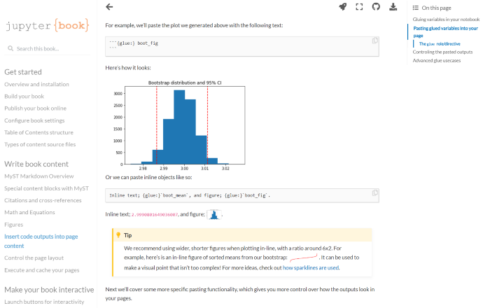
Jupyter Book is an open-source tool for building publication-quality books, websites and documents with computational content. It enables users to write content in markdown files or Jupyter notebooks, include computational elements, include rich syntax, and convert content into web-based interactive books and PDFs.
This week, the team has announced it is reworking the project to make it easier to install, use and create publishing content. Additionally, the project is now supported and will continue to be developed by the Executable Book Project, an open-source community for the Jupyter ecosystem.
While the new version is still in beta, the team explained it should feel very similar to the previous Jupyter Book.
The main features in this version include:
- Ability to write publication-quality content in markdown with support for citations, cross references, math, equations and figures.
- Include code and outputs in your books
- Execute and cache book content
- Insert notebook outputs into content
- Add interactivity
- Generate a variety of outputs
- Build books with a command-line interface
Major changes include:
- Support for MyST Markdown language that implements all features of the Sphinx documentation engine
- A smarter build system that uses Python and leverages Jupyter Cache
- More book output types with prototype work on PDF Outputs
- A new stack that uses the Sphinx documentation engine instead of Jekyll
- Support for Sphinx extensions






